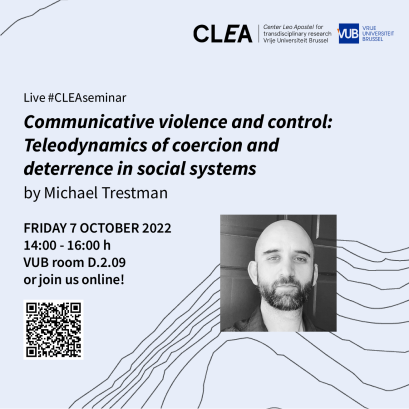The greatest impediments to goal-directed action are often the goal-directed activities of other agents. Prey stubbornly resist being eaten, competitors interrupt the usage of resources, and predators can interrupt one’s entire agenda. Goal-directed systems such as biological organisms are organizationally complex, and so they must maintain themselves against entropy through “autopoietic” processes of continual self-generation; they are therefore essentially vulnerable to disruptions of that organization and those processes. Goal-directed behavior tends to be structured around acquiring and maintaining suitable conditions and avoiding disruptions. We may call the fundamental tendency of goal-directed systems to avoid disruptions to the basic conditions of their well-functioning ‘harm avoidance’. In situations where goal-directed actors are at odds, a pattern of second order goal-directed behavior tends to emerge wherein one agent manipulates the behavior of another through the predictable nature of the latter’s harm avoidance tactics. We may employ the terms coercion and deterrence for the positive and negative formulations of this metatactic, using the threat of violence to control another agent’s behavior. Notably, this control is often implemented through acts of communicative violence. These patterns arise in diverse forms in biological, social and technological systems at a variety of spatiotemporal scales. Under what conditions do coercion and deterrence emerge, and what influences the form they take? What are the developmental, ecological and evolutionary signatures of coercion and deterrence in the dynamics of biological, social and technological systems? What implications might there be for reducing the prevalence of coercion and violence in our own biological, social and technological worlds?
About the speaker:
Michael Trestman is an independent researcher working at the intersection of phenomenology, cognitive/computational systems theory, and animal biology. He received his PhD in philosophy at University of California, Davis in 2010.
Practical
The CLEA seminars are taking place simultaneously at the VUB campus in Etterbeek, Brussels, and online (via Zoom) and are open to everyone interested!
When. Friday October 7, 2022 from 14:00 until 16:00h
Where (live). VUB campus Etterbeek, room D.2.09
Online. You can follow online via Zoom. You may need a Meeting ID and passcode to enter.
Zoom link: https://us06web.zoom.us/j/82757798426?pwd=em9sQlJDVjJYTEFRNk01dEJLWGxGUT09
Meeting ID: 827 5779 8426
Passcode: 122127
Video:
Acknowledgement
This seminar was supported by the John Templeton Foundation through the grant ID61733 The Origins of Goal-Directedness.

